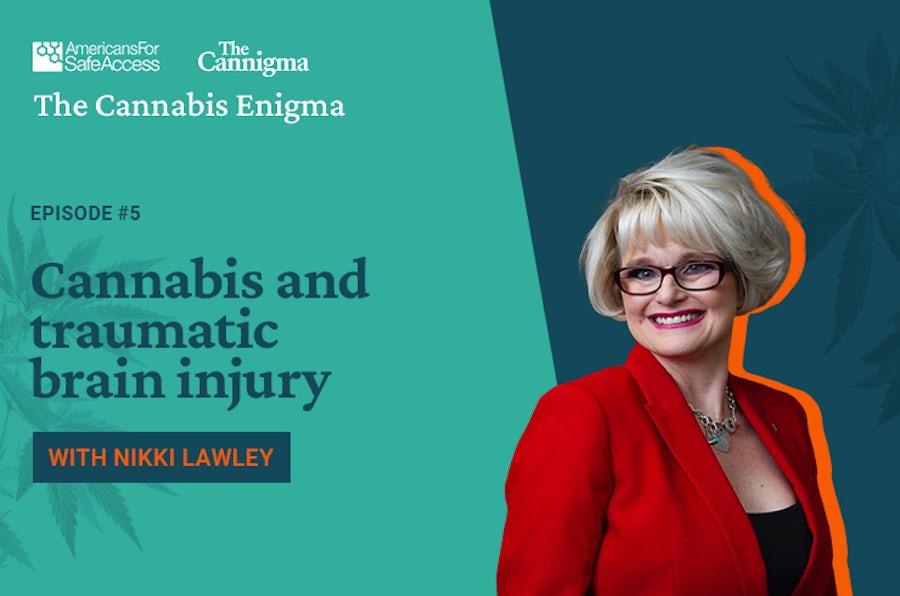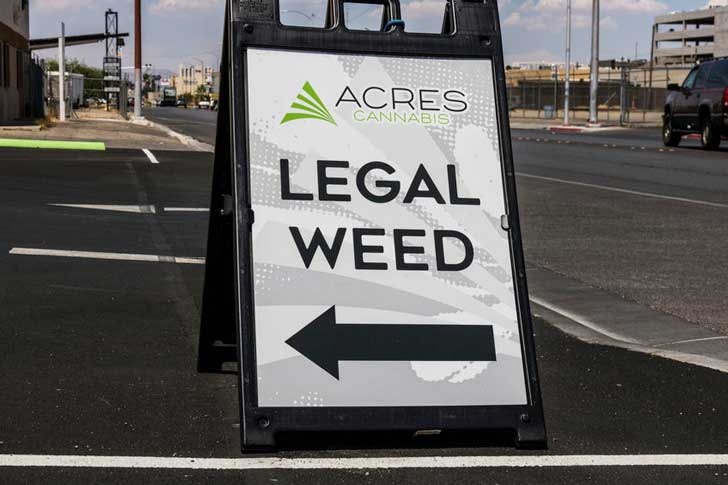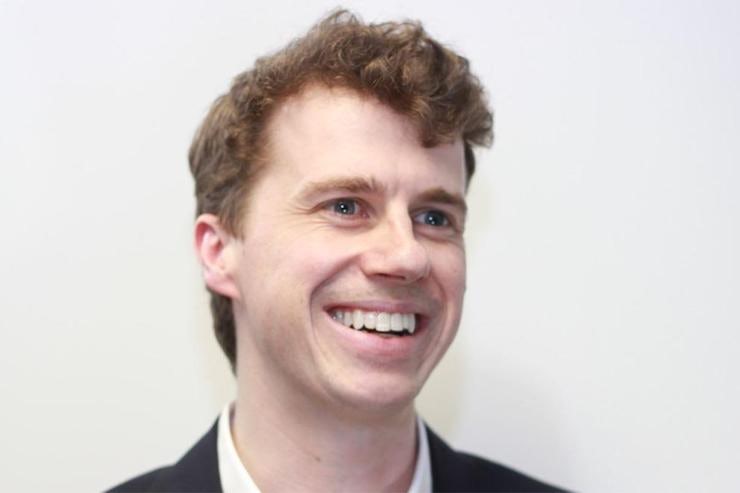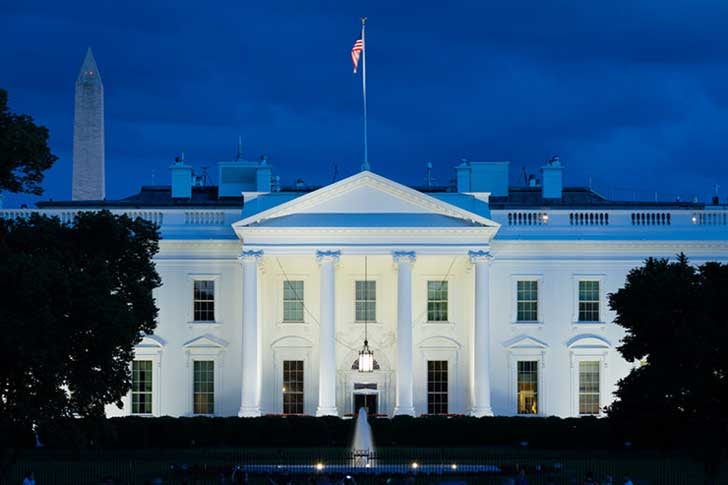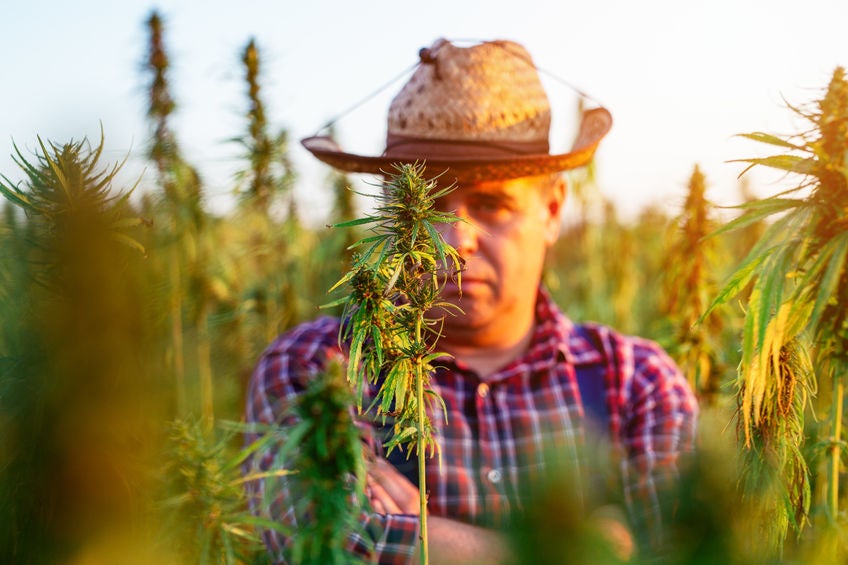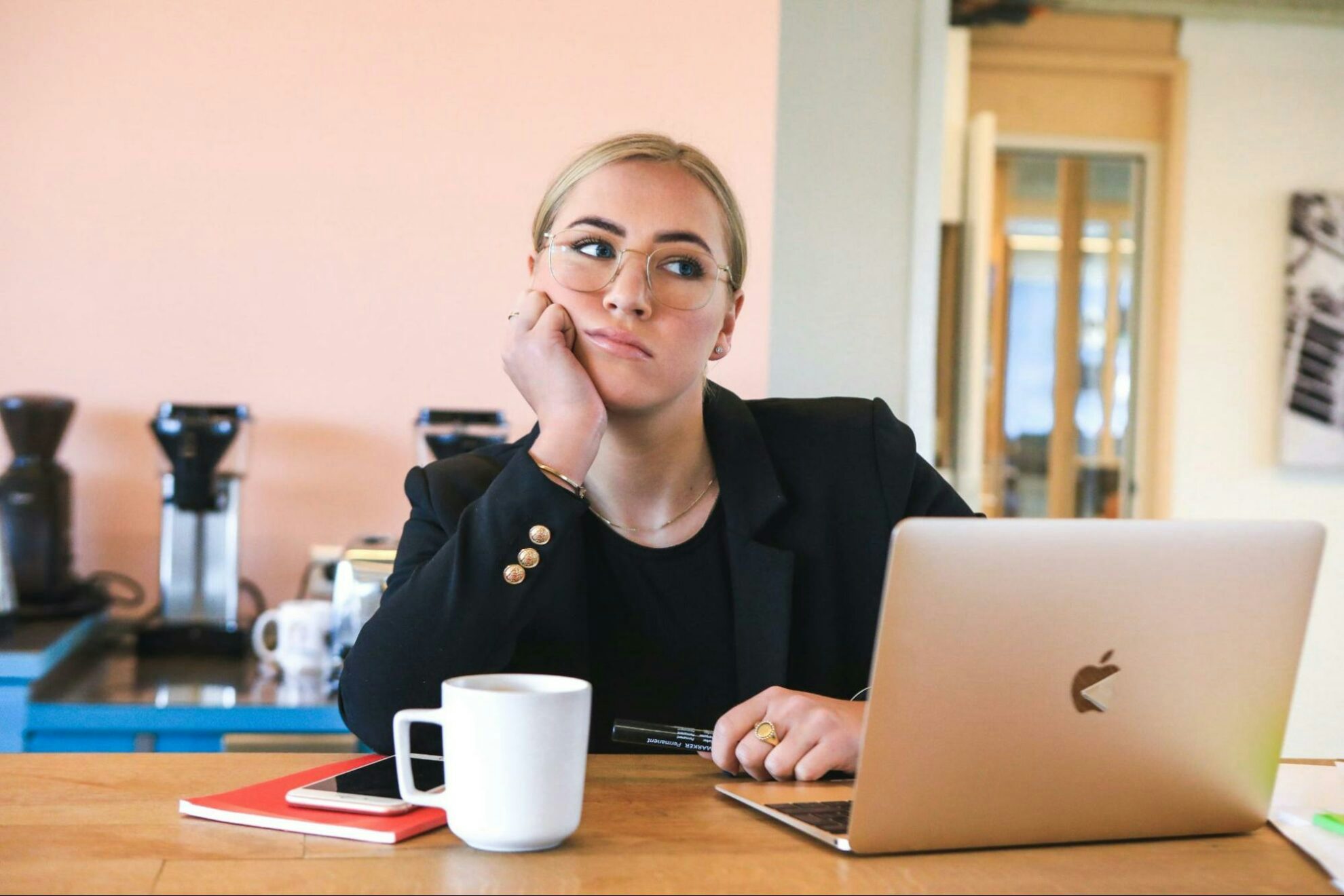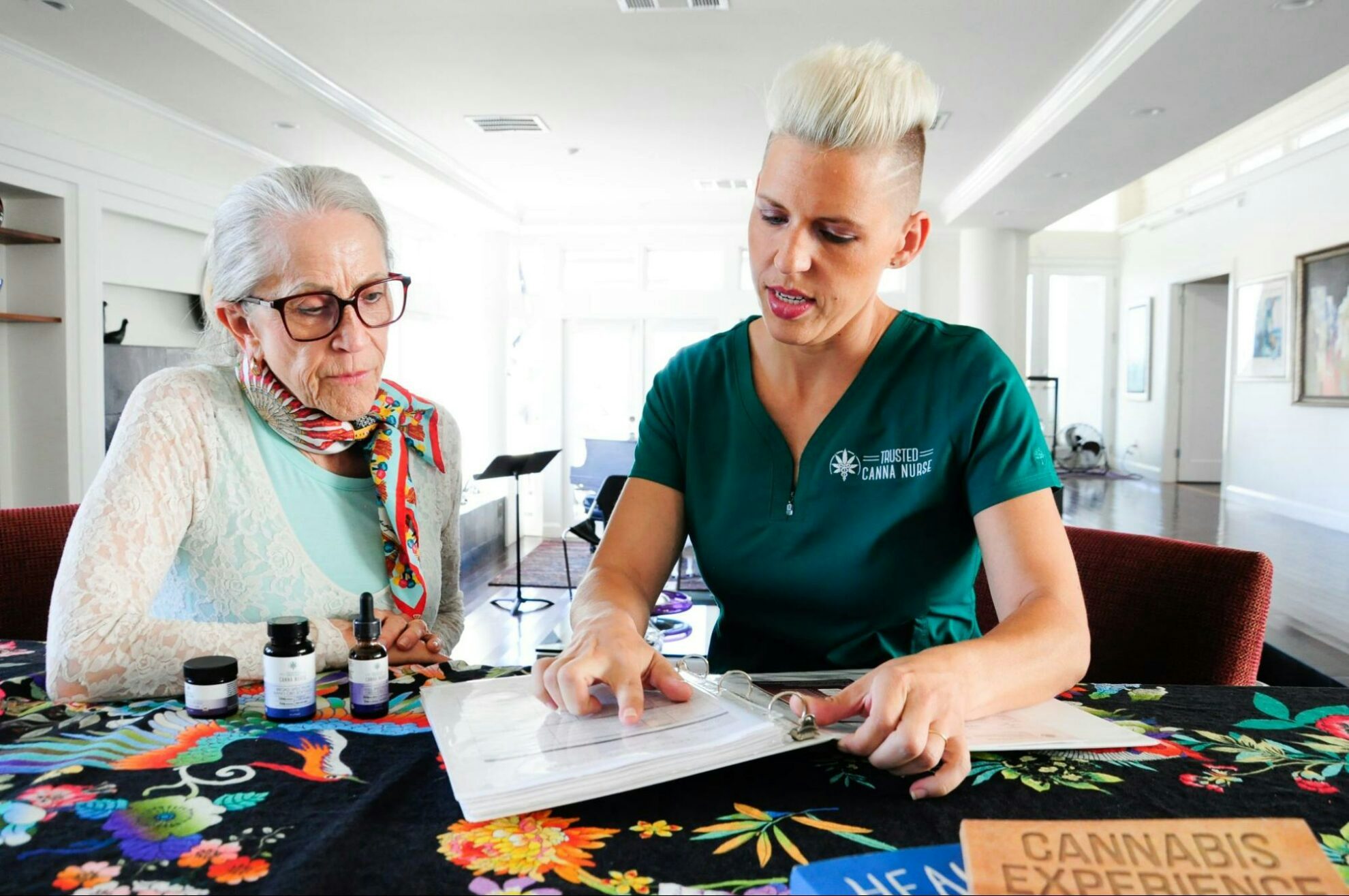The decades-long War on Drugs campaign in America has been incredibly successful at spreading harmful rhetoric and shaping people’s perception of cannabis use. The resulting prejudice can often discourage folks from seeking out medical cannabis as an option, and can even affect state legislature, forcing patients to overcome unnecessary and prohibitive obstacles in order to receive the treatment they need.
Today on the show we welcome Nikki Lawley, a Traumatic Brain Injury Survivor, and founder of NIKKI and the Plant, an advocacy group for medical marijuana use, with a special focus on helping women who have suffered a TBI. We talk with Nikki about her life-altering TBI, her previous prejudices around cannabis use, and how her journey led her to the founding of NIKKI and the Plant. After being prescribed over 60 medications and seeing dozens of healthcare professionals, Nikki finally found relief and a reason to be optimistic when she tried medical cannabis. In our conversation, Nikki shares how difficult it was transitioning from her role as a nurse, and health care provider, to being a patient. She explains how the state legislature in New York prevented her from accessing the medication she needed, as well as how difficult it was navigating the world of medical cannabis and finding a product that reliably worked for her.
We delve into Nikki’s advocacy work, her approach to addressing people’s prejudices, and why she is dedicated to changing the narrative around medical cannabis use. Nikki’s story is deeply inspirational, and we are honored to have had her on the show. It’s an imported reminder of the real-world impact that medical marijuana and advocacy can have on the lives of everyday individuals!
The Cannabis Enigma is a co-production of The Cannigma and Americans for Safe Access. Music by Desca.
Full transcript:
Elana Goldberg: Hi, I’m Elana Goldberg.
Code Peterson: I’m Dr. Cody Peterson.
EG: We’ve got a super interesting episode today. This was one of my favorite interviews that I recorded, sidelines of MJBizCon in Las Vegas in October this year. I interviewed Nikki Lawley, who is a traumatic brain injury survivor, and since her brain injury and subsequently finding cannabis as a medicine, she’s become a staunch advocate for therapeutic use of the plant.
We caught up not only on the sidelines of the compass but sitting on the floor, around the corner. I’ll put a photo in the shownotes so everyone can see. Sitting around the corner, Nikki was wearing this jacket that was making too much noise as we were recording so she actually decided to just take off the jacket, so we recorded in her sports gear like crop top and leggings and we had maintenance staff coming past.
I will note that if there are any loud kind of rumbling noises that you hear, that was the maintenance staff kind of rolling their carts past us. Anyway, I won’t tell too much about the interview because really, Nikki tells her whole story and I don’t need to kind of summarize her words for you all but I did think Cody, this could be a good chance for you to kind of give a bit of an introduction to cannabis use for TBI, for traumatic brain injury.

CP: Absolutely. Well, I know Nikki, we’re connected on LinkedIn, I’m a little jealous you got to meet her, the interview was the day before I got to meet Elana in Vegas for MJBizCon. Sure, Nikki’s not the first person to use cannabis as medicine to help with traumatic brain injury.
When we get traumatic brain injury, there’s an insult to the brain. Usually, essentially, it can be a bruise or even worse than that, a bleed or a blood clot. That sort of damage is essentially irreparable, not completely but the brain doesn’t heal well, it’s notoriously difficult to heal. It turns out that when it is injured, the endocannabinoid system actually responds to that injury and sort of upregulates itself, turns up the volume on the ECS.
We think now that as more and more data is becoming available, the cannabis could be a very useful treatment both THC and CBD have shown promise in helping with the inflammation and some of the damage that has occurred in the brain.
This is not just foo-foo, there’s plenty of early evidence to suggest that there might be something here about cannabinoids as neuroprotectants and also as neurogenic helpers and sort of helping us heal our brains. I can’t wait to hear how cannabis has helped Nikki in her journey recovering from traumatic brain injury.
EG: Well, that was certainly her experience. Actually, I remember reading some really interesting research about cannabis and TBI and as you would imagine, it’s kind of difficult to study this therapy because you have to cause people traumatic brain injury in order to then give them cannabis. What this study that, I think there are a couple more like it as well.
The way they did it was actually looked at people who had suffered a traumatic brain injury and had coincidentally also used cannabis beforehand and then compared the effect, DDI sufferers who have not used cannabis beforehand and were able to start kind of drawing some insights from that.
CP: Yeah, these types of studies are not perfect but they can shed a lot, like you said, a lot of insights into what might be happening. Some of those early studies do suggest that cannabis might be protecting brains and helping brains recover and so really, we now need to continue to build on the science we have and explore cannabis as medicine and cannabinoid science, my favorite topic.
EG: Definitely. All right, let’s go straight to the interview and stick around also after the interview, we’ve got a special segment from Americans for Safe Access. Well, partners, of course on the cannabis enigma, yeah, let’s listen to Nikki.
EG: Here at the moment at MJBizCon in Las Vegas with Nikki Lawley who is a cannabis patient and advocate and has her own company, Nikki and The Plant. Nikki, first of all, thank you very much for joining me here today.
Nikki Lawley: Absolutely, it’s an absolute pleasure to be here with you, Elana.
EG: Just to kind of set the scene a little bit for our listeners, we’re currently sitting at some corner of the exhibition center, we found the floor, we’re both sitting cross legged on the floor for this interview. Any sort of background noise you hear will be other conference attendees walking pass, sometimes there are these little buggies that come past as well. Apologies for the noise but we are sitting here at the conference and this is a bit of atmosphere that you might be able to hear a bit in the background. How’s the conference been for you so far?
NL: This is my first time to the convention center today, this trip, but so far so good. I’m meeting you.
EG: Yeah, good start to the day. Nikki, I would love if you could start off just telling us about your story.
NL: Sure, I was injured in October of 2016, a child did not want a vaccine and hit me frontally and I bounced off a wall and back into his head. That caused a traumatic brain injury as well as cervical instability and my life’s never been the same since. I was in a very dark place, I was on over 60 different pharmaceuticals and then I saw over 50 specialists all across our country as well as Canada and the journey was really dehumanizing, almost.
Having been a successful pediatric nurse, being able to talk the talk, walk the talk and then becoming a patient. Going from provider, caregiver to patient was a huge adjustment for me, what’s kind of weird is we’re here at MJBizCon in January 24th of 2017, my life is actually saved in Las Vegas because I found medical cannabis. A billboard was coming down the strip and I was planning my death, I was trying to figure out how to jump and not be more screwed up and literally, a billboard came by saying, “Get your medical pneumatic card here today” and all I could see was the egg frying someone’s head.
You know,’your brain on drugs’ and having a traumatic brain injury, I couldn’t see whether cannabis was going to be my answer after being fed the negative propaganda of the whole war on drugs and all that stuff. My husband was like, “Yes, let’s go, he’d smoked pot in the past and that’s made you laugh so let’s try that” because I was in a truly desponded state. I could not literally leave my hotel room. Finding medical cannabis was eye-opening for me. My first dispensary trip was absolutely overwhelming, didn’t have any clue, luckily, the budtender was very patient with me and I was like a kid in a candy store that doesn’t know if the candy is going to be any good.
I really didn’t know where to start quite honestly and so, budtender did what any guy would probably do and that’s just recommended really heavily sedating type terpenes and for me, I find the whole plant and smoking it, works the best for my medical situations. It’s all about the terpenes for me. The entourage of the whole plant with specific terpenes, specific genetics really set life apart for me and really are game changing.
EG: Wow, if there’s a bunch of things I want to drill into that story. Tell me a bit more first of all about that first dispensary experience, you went in there, you’ve got your medical cannabis license for the first time. You smoked cannabis in the past but you never thought of it as a medicine before, is that right?
NL: Correct.
EG: Okay, how did you go about – what questions were you even asking the budtender the first time?
NL: I was in Vegas three days and I had not left my hotel room the entire time. Going there, I was literally, it was a huge big deal for me to just even get out of the car. I mean, asking questions was like, how can I function, how can I sleep, how can I not be in pain. I’ve had insane anxiety, depression and I literally lost my purpose and so the budtender recommended high myrcene strains and really sedating things and he also gave me gummies, tinctures and various edible type things. What I found I got no relief from and I couldn’t understand that, I’m like, “Well, this doesn’t work.”
It was kind of frustrating, trying to figure out, why isn’t this working for me the way they advertised it should. I have a unique digestive system, I don’t absorb fat soluble products very well so that includes THC and CBD and so I have no gallbladder and I have weight loss surgery many years ago so that’s why they didn’t have an effect but it took me years to understand that, thinking I just had this incredible tolerance that I can bow down a thousand milligrams of THC and feel nothing.
EG: Wow, so you actually weren’t breaking it down?
NL: Right, I don’t break it down at all.
EG: How did you find this out? Was it just your own trial and error, or did you have healthcare providers and experts that helped you?
NL: I wish I had a healthcare provider help me. Honestly, it was trial and error. When I came from Las Vegas getting my medical card, I then had to come back to New York where I lived and in New York, chronic pain was not on our list of approved conditions. We don’t have any flower in New York at the time. I became a medical cannabis refugee in Canada and I learned all about the plant and what works and I used this great application that tracked my usage and helped me understand what terpenes, what minor cannabinoids actually were.
Specific strain names, I learned, really mean nothing. Blueberry Kush from CannTrust versus Blueberry Kush from [Cannabigrowth 0:10:50.4] is a completely different experience and one is a hybrid, one is – and again, I hate Indica Sativa, hybrid words to me, that is not helping things. It should be more – Myrcene tends to be more of indica type concept, not so much just a name. Look at the whole profile, look at the whole chemical composition of the flower.
EG: Right. I mean, as you know, at the Cannigma, this is what we do. Kind of making this sort of information accessible to anyone who needs it like you did really at the time, unfortunately, Cannigma did not exist at that time. I guess, what I’m hearing is that for you, you have to go through that whole process by yourself and just kind of figure out each little bit by yourself. What made you stick at it?
NL: That is a good question. Luckily, I had friends in Canada that were willing to let me stay with them for weeks at a time and they’re like, “Hey, if that weed stuff helped you in Vegas, we can get that stuff in our medical program all day long. Let us help you.” and I would literally go to Canada.
One day, it’s kind of unique, I was talking to my husband, he’s like, “What’s wrong with you?” I’m like, “What do you mean what’s wrong with me?” He’s like, “You’re laughing.” And I said, “What do you mean?” He’s like, “I’m actually playing scrabble right now and I’m actually winning.” He’s like, “What are you using? “Why are you so happy?” he literally have been through six months of literal hell of my depression and pain and journey and feeling hopeless and worthless and so this was a huge 180 and literally that day I really said, I’m onto something, this might actually work for me.
It was the help of the app, it was the help of honestly, my network. I’ve had so many humans with brain injury, without brain injury, cannabis nurses, cannabis – you know, I’ve had so much support and my network has just grown exponentially. I have like, crazy amount of followers that just really care about the story and wanted to see me repair the world.
EG: Yeah, definitely. Tell me about that network and what you’re doing about it, with it, I suppose and Nikki and The Plant.
NL: Nikki and the plant is promoting advocacy and awareness, we’re really trying to focus on women and brain injury especially, it’s crazy how many people that have a brain injury that you would have never guessed or impression or having lasting symptoms that they never thought they would still have.
Nikki and The Plant’s planning on launching a brain health, brain injury product line with resources and education, a closed loop system that really ties the providers, the patients and life hacks, and a way of dealing with brain injury. Cannabis is a tool, it’s not a cure.
EG: Yeah, definitely. All right, we’re really excited to see those products when you launch them, make sure you keep us posted.
NL: I will, for sure.
EG: Tell us about what you’re planning.
NL: It’s really about wellness and teaching people and helping them move the stigma. I am a nurse by trade and I – if a patient would have come in saying they’re giving their kid cannabis, I would call child protective services agency on them. For me, having reversed my whole stance, having understood we actually have an endocannabinoid system, what a unique thing, definitely not taught in nursing school, definitely not taught by other healthcare providers.
I mean, I’m sort of on a mission to bring the patients, let them use their voice and actually be a solution rather than problems. You know, really helping to articulate the benefits of cannabis, articulate the reasons that cannabis can be used for wellness and help so many people. I mean, anxiety and depression are running rampant since COVID and giving people hope is I think what keeps me going.
Everyday someone reaches out, whether it’s on a Facebook post or an Insta post or in LinkedIn saying, “You know, keep going, your story really helped me understand this or that or the other thing” or “I had a TBI too and cannabis is the only thing that helps me” and of course, you do get some naysayers saying if you’re smoking cannabis you’re just getting high. If you preferred high THC products then you’re really just to get stoned.
I don’t get stoned, I get medicated and that’s what we need to relearn in society. I think people immediately hear marijuana or cannabis and they immediately think that’s a pothead or lazy on the couch with Scooby snacks hanging out and I had that perception, so I mean, kudos that I reversed my position because I think even though I was injured everything happens for a reason and I truly, truly believe that my purpose is much bigger now than it have ever was as a nurse and I believe that lives are changing because of my story.
EG: Yeah, absolutely. That must be a good feeling.
NL: It really is. It’s giving back. You know, I’m a true giver and really want to see people do well. I want to collaborate with the right people and make something really unique and cool happen.
EG: Yeah, I hear that. I’m thinking about these naysayers, okay? I mean it’s obvious that the reason your view changed so starkly about cannabis is because of your own experience but not everyone is “lucky” enough to have an experience that will change them and so you need advocates, so what do you say to people who would say something to like you said, like if you are using high THC products all you’re trying to do here is get high.
How do you kind of start this conversation and start changing minds and breaking down the stigma?
NL: Funny you mentioned that, I recently was at a board meeting and they were debating in New York State whether we want to have cannabis consumption in retail on my little island and it was very negative energy in there and I got up and I literally looked at each and every board member and said, “This plant saved my life and I should have access to it, I should have safe consumption and I should not have to leave the island to medicate” and I changed three of those board members.
Now, I am having a round table discussion about just ask me anything, let’s have a conversation about it. Let’s remove the stigma. After I spoke literally on my way out, I was accosted by a naysayer, exactly what you’re describing and if I had a recording of every single thing he said to me, you could not have defined the whole we’re on drugs any better. I mean, it’s a gateway drug. The war on drugs is working, I mean everything single thing and I just came back with an educated response and why do you feel that way?
You know, to get a dispensary here, we’re not going to be able to market it to 12 year olds, you know? We’re not trying to medicate children for no reason, so getting people to understand that and I think I definitely have not considered the typical stoner appearance, so I think that makes people kind of sit back, think, listen and learn more.
EG: Right, the kind of like breaks the stereotypes that they’ve gotten so it leads room for I don’t know, for an opinion to change I suppose to your point of view. It’s really kind of grassroots activism what you’re doing here talking to people one-by-one changing their points of view. Does your social media activity kind of fall into that a lot and what other channels are you using?
NL: Yes, I’ve had so many people share my story on their podcast, on their phones and I also have an incredible social media following. I’m kind of at max connections everywhere so people can follow me but I can follow them back but I usually can’t friend them or accept the connection request not because I want to but because I’m at max. 30,000 max for LinkedIn and –
EG: Good problem to have.
NL: I mean, people say that to me all the time and like 90% of my LinkedIn connects are vetted cannabis or TBI or you know, legitimate connects and so it’s pretty cool when you see that kind of reach. You know, my posts reach 17,000 a day you know? I mean, for somebody that’s completely a techno moron, yeah it’s okay. It’s all organic, I just recently started using hashtags so I’m noticing a lot more activity because of that but yeah, my nikkiandtheplant.org page is also getting a lot more hits.
Again, just trying to find the right people to build your team to make sure that all that technical stuff is handled because that is not my strength. It is really more sharing the story, bringing plant awareness, helping others.
EG: Right but a super powerful story. I’m glad we finally have the chance to get you on the podcast and share with our listeners. We’ll put in the shownotes a link to Nikki and The Plant. Anywhere else that we should tell people to find you or to follow what you’re doing?
NL: Sure, please follow me on LinkedIn, Nikki Lawley or Instagram, Nikki and The Plant as well as Facebook, Nikki and The Plant or Nikki Lawley.
EG: Got it, so Nikki Lawley and Nikki and The Plant everywhere basically to find you there and we look forward to seeing the product when it’s launched. Keep us posted.
NL: Thank you so much Elana and I really appreciate you guys taking the time. I love Israel and everything that comes out of there, so one of my favorite brands is out of that, so [inaudible 0:20:42.8] literally is one of the best cultivars I’ve ever had, so they’re out in your backyard.
EG: Yeah, right, one of the first Israeli medical cannabis company.
NL: Yes.
EG: Great, we’ll come and visit next time you’re in Israel, sure and we’ll be in touch.
NL: Great, thank you so much.
EG: Thank you.
CP: Hi, I’m Dr. Cody Peterson and I am here with Heather Despres from Americans for Safe Access. Hi Heather.
Heather Despres: Hey Cody.
CP: Thanks for joining us for our quick little diddy at the end of the podcast. We’re just really excited to highlight all the great work that you’re doing at Americans for Safe Access. Can you tell the listener a little bit about what you do at ASA and then we’ll get into why that matters?
HD: Sure, I ran the PFC program at Americans for Safe Access. It is the compliance and training side of ASA’s offerings to the industry and so the PFC program offers compliance courses, educational courses and we also have a business certification side of things and our business certification side of things is currently the only ISO 17065 accredited compliance program in the cannabis space right now.
CP: ISO what? ISO 176 – can you – what?
HD: It’s ISO 17065 and it is for certifying bodies for products, processes and services, which is basically a big fancy way of saying that our audit program has been audited by professional auditors to make sure that we are assessing businesses in a manner that is kind of helped them become compliant with regulations.
CP: Okay, this is good though, I’ve heard this. Who is auditing the auditors and you are telling me that that is happening. The auditing of the auditors is – I’m going to look into this, maybe we need an audit special team. Anyway, the point is, is you’re working with companies to make sure that they are complying with regulations and those compliance regulations are set to help patients and consumers make sure that they’re getting clean, tested and safe cannabis products.
Is that kind of a gist? I know that what you’re doing on – you know, you are training companies to do this. Is that correct or to make sure they comply?
HD: Yeah, so the PFC program was actually started because as you guys know, Americans for Safe Access’s mission is to really advance cannabis therapeutics for use and research and we want to make sure that any patients that are getting this medicine and consumers on the adult use market know that the products that they’re getting have undergone some sort of compliance inspection whether that’s safety testing, that the business that is manufacturing them or cultivating them is operating in a healthy and safe way that isn’t going to adulterate or bring contamination into the products.
We provide compliance audits to businesses and of course was founded to make sure that you know, patients have safe access to medicine. It’s right there in the name and the PFC program is a way to help patients and consumers kind of find an identifying mark and label to say, “Oh, this business is PFC certified, hey, their products, they’ve been audited, they’ve been reviewed, we know that they’re making sure that this business is compliant that employees are safe, that consumers are safe and that we’re not putting adulterated products or contaminated products into the market.”
CP: Okay, so you are actually certifying that manufacturers are following a certain standard and then you are giving a stamp out, right? Consumers can look at the bottle and say, “Ah, I have a PFC stamp, this is to be trusted.”
HD: Yep and we certify all areas of the industry, so we do cultivation, manufacturing, dispensary and laboratory operations because we want to make sure that all of the products from the entire supply chain have gone or gone some level of review and assessment to make sure that they are operating according to the PFC standard.
CP: Ah, looking out for patients and consumers I see again ASA, that’s great. I’m glad to hear that consumers need tools to judge a product. You know, one of the things that I hear most is, is this product good for my loved ones or from a patient, “Hey, is this one good?” and at least it sounds like PFC is giving us some sort of tools for patients and consumers and even health care professionals to lean on. I think that that is incredibly important work because right now there isn’t a lot of tools out there.
HD: There aren’t and it’s kind of challenging because you know right now, the PFC program is a voluntary compliance program and so it’s very hard to get businesses to voluntarily want to get assessed but it is a very important tool in your production practices to make sure that you have some sort of external oversight of your operation in the same way that we have external oversight by getting audited regularly through ISO and through additional external audits that we get done.
CP: Sure and I am audited and you know, I guess checked, certified by multiple organizations in the hospital as well and we serve patients with medicine, again, a very similar task. I can’t wait to hear more about what ASA is doing and dive a little bit deeper into what sort of tests PFC might be doing to validate the safety of these products. Thank you so much Heather for joining us today and I hope everyone has a lovely week.
HD: Thanks and thank you for having me on here.
CP: See you next time.
EG: I’m Elana Goldberg. This episode of The Cannabis Enigma Podcast was executive produced by myself with production assistants from Dr. Cody Peterson and Ed Bison and edited by our friends at We Edit Podcasts. If you enjoyed the episode, feel free to like, rate and share. It helps other people find the podcast and it’s really nice for us as well.
Sign up for bi-weekly updates, packed full of cannabis education, recipes, and tips. Your inbox will love it.

 Shop
Shop Support
Support